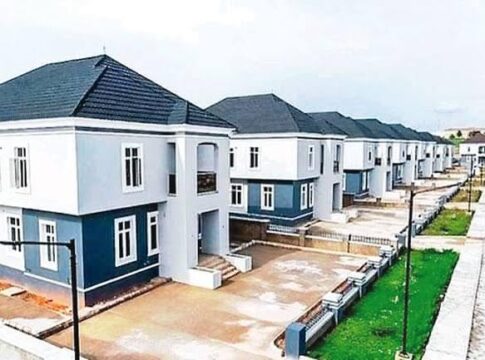Property owners in Lagos have a new opportunity to save on their tax bills while supporting Nigeria’s economic hub, as the state government rolls out its 2025 Land Use Charge (LUC) bills with a significant early payment incentive.
Finance Commissioner Abayomi Oluyemi announced Saturday that property owners can receive a 15% discount if they pay within 30 days of receiving their bills. The move aims to boost compliance while funding critical infrastructure improvements across Africa’s largest city.
READ MORE: Multichoice Raises DStv, GOtv Subscription Prices Again, Citing Inflation
“Every payment contributes directly to transforming Lagos into the modern, thriving metropolis we all envision,” Oluyemi said in a statement posted on the government’s website. “This is not just about revenue collection but about building a Lagos that works for everyone.”
Multiple Payment Options Available
The government has expanded payment channels to make compliance easier, offering options including internet banking, bank deposits, USSD codes, POS machines at LUC offices, and the Lagos Online Assistant (LOLA) WhatsApp platform.
“We’ve made paying your Land Use Charge more convenient than ever,” Oluyemi told Bloomberg in a phone interview. “Property owners shouldn’t miss this opportunity to fulfill their civic duty while enjoying substantial savings.”
Critical Revenue Source
The Land Use Charge has become increasingly important to Lagos State’s finances. In 2024, the government projected ₦700 million ($437,500) in revenue from the charge and collected ₦300 million ($187,500) in just the first four months, according to government figures.
“Infrastructure development requires sustainable funding,” said Tunde Adejuwon, an economist at Lagos Business School. “The Land Use Charge represents one of the most stable revenue streams for the state, especially as it diversifies income sources away from federal allocations.”
Exemptions in Place
Not all properties are subject to the charge. The Land Use Charge Law 2020 exempts properties owned and occupied by pensioners, public libraries, non-profit cemeteries, palaces of traditional rulers, and religious properties used for worship or education.
“We’ve structured the exemptions to protect vulnerable residents and institutions providing essential community services,” Oluyemi explained. “Eligible property owners simply need to apply through my office with supporting documentation.”
The early payment discount continues a trend from previous years, though collection rates have historically fallen short of government targets. Property owners who previously experienced billing errors are advised to visit their local Land Use Charge office for resolution.
“With improved property documentation and digital payment systems, we expect 2025 to be our most efficient collection year to date,” Oluyemi said.




